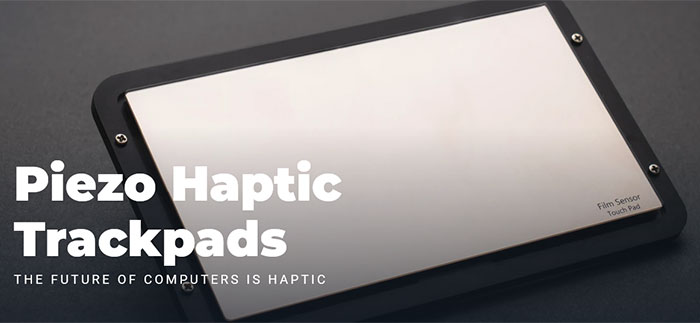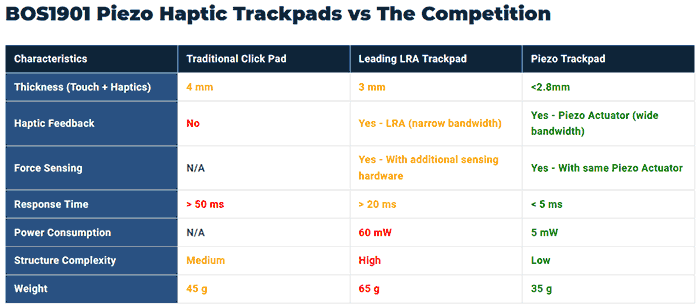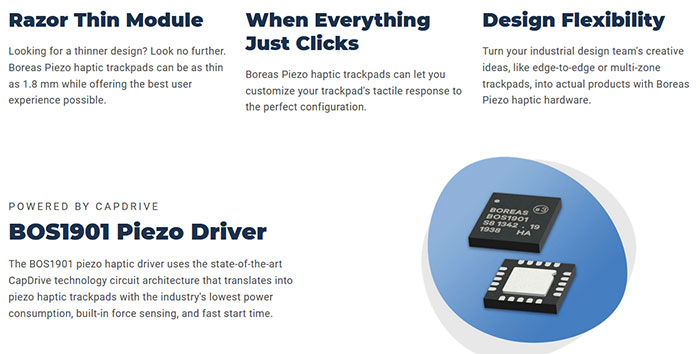Boréas Technologies and Cirque Corporation (the latter perhaps best known for the GlidePoint tech and Alps keyswitches) have announced a next-gen laptop trackpad module based on piezo technology. The new trackpad is touted as being slimmer, more accurate, and more reliable - while providing a rich haptic touch experience.
Though the above news and linked press release might not butter your parsnips, according to Daniel Rubino (the editor of Windows Central), this is new touchpad tech is going to be a "big deal" in 2022. Current capacitive trackpads are characterized by Rubino as relying on long-in-the-tooth technology that is "prone to breakage, can have phantom or dead zones, and are fundamentally inaccurate". Apple's offerings are only a little better, he opines, with the touchpad largely capacitive but the 'Taptic Engine' replacing physical clicks with a couple of solenoids.

The new Boréas and Cirque solution uses piezo tech in the place of capacitive technology and the partners claim to deliver "a new notebook trackpad module that combines force sensing and HD haptic touch in a thin, light, low-power platform that helps streamline machine size and extends battery lifetimes". Moreover, this single chip solution can allow device makers to make much bigger trackpads without driving up costs, says Windows Central. Overall, it sounds like a big win, but users will have to A/B such a device against the older and established tech to get a feel for the worth of the experience.

A useful table makes clear the differences in trackpad tech.
Microsoft is making trackpads that are compatible with the Windows Precision driver mandatory with Windows 11, which is a good start for ensuring standard snappy and responsive touchpad control, with standard Windows gesture support. However, this major improvement driven by piezo trechnology isn't really going to be established that quickly. Boréas and Cirque need big names like Lenovo, HP and Dell to fit their top machines with their trackpads and that will get the ball rolling. Nevertheless, the companies are confident that their collaborative effort will become the first mass market Windows haptic trackpad solution – perhaps one or more such deals has already been inked...

It is noted that Microsoft already works closely with Boréas and Cirque. As the haptic tech can sense various degrees of force, it is even teased that the new piezo trackpads could offer a new dimension in touch control with Windows 11 device support.






